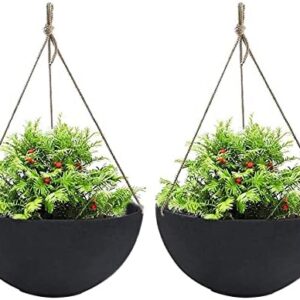As humans, we have always had a deep connection with nature. We have relied on the plants and herbs around us for thousands of years for food, medicine, and overall well-being. In today’s fast-paced and technology-driven world, it can be easy to forget about the healing power that lies in our own backyard or garden. But the truth is, nature has provided us with a bounty of medicinal herbs that can help us treat a variety of ailments and promote overall health and wellness.
Herbs have been used for centuries as natural remedies for a wide range of health issues, from common colds and digestive problems to more serious conditions like inflammation and anxiety. And the best part is, many of these herbs can be easily grown and cultivated in your own garden, making them easily accessible whenever you need them.
One of the key benefits of using herbs for natural remedies is their gentle and holistic approach to healing. Unlike many pharmaceutical drugs that can come with a host of side effects, herbs work in harmony with the body to support its natural healing processes. Whether you’re looking to boost your immune system, calm your mind, or soothe an upset stomach, there is likely an herb that can help.
Take, for example, the humble chamomile plant. Chamomile is known for its calming and soothing properties, making it a popular herb for promoting relaxation and reducing stress and anxiety. A simple cup of chamomile tea before bed can help calm the mind and prepare the body for a restful night’s sleep. And if you have a garden, you can easily grow your own chamomile plants and harvest the flowers for tea whenever you need them.
Another versatile herb that can be grown in your garden is peppermint. Peppermint is well-known for its ability to aid digestion and soothe an upset stomach. Whether you’re dealing with indigestion, bloating, or nausea, a cup of peppermint tea or a few fresh leaves chewed can help alleviate your symptoms. And if you have a patch of soil in your garden, you can plant some peppermint plants and have a fresh supply of this digestive aid on hand at all times.
In addition to promoting physical health, herbs can also be used to support emotional and mental well-being. For example, lavender is a popular herb known for its calming and relaxing properties. The scent of lavender has been shown to reduce anxiety and promote a sense of calm and relaxation. You can easily grow lavender in your garden and use the flowers to make sachets, essential oil, or even add to your bath for a luxurious and calming experience.
Herbs can also be used to support the immune system and ward off illness. Garlic, for example, is a powerful herb that has been used for centuries for its immune-boosting properties. Garlic contains compounds that have antimicrobial and antiviral properties, making it an effective natural remedy for colds, flus, and other infections. You can easily grow garlic in your garden and incorporate it into your cooking to support your immune system year-round.
Of course, it’s important to remember that while herbs can be powerful allies in promoting health and well-being, they are not a replacement for professional medical advice and treatment. If you have a serious health condition or are unsure about using herbs for a specific ailment, it’s always best to consult with a healthcare provider.
When it comes to using herbs for natural remedies, there are countless options to explore. From growing your own herbs in a garden to sourcing them from a local farmer’s market or health food store, incorporating herbs into your daily routine can have a profound impact on your health and well-being.
So the next time you’re feeling under the weather, stressed out, or in need of a little extra support, consider turning to the healing power of herbs. By harnessing the gifts of nature and tending to your own garden, you can create a natural apothecary that can help you thrive and flourish in mind, body, and spirit.







